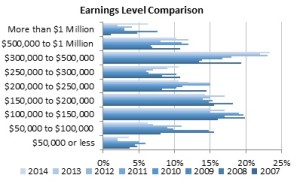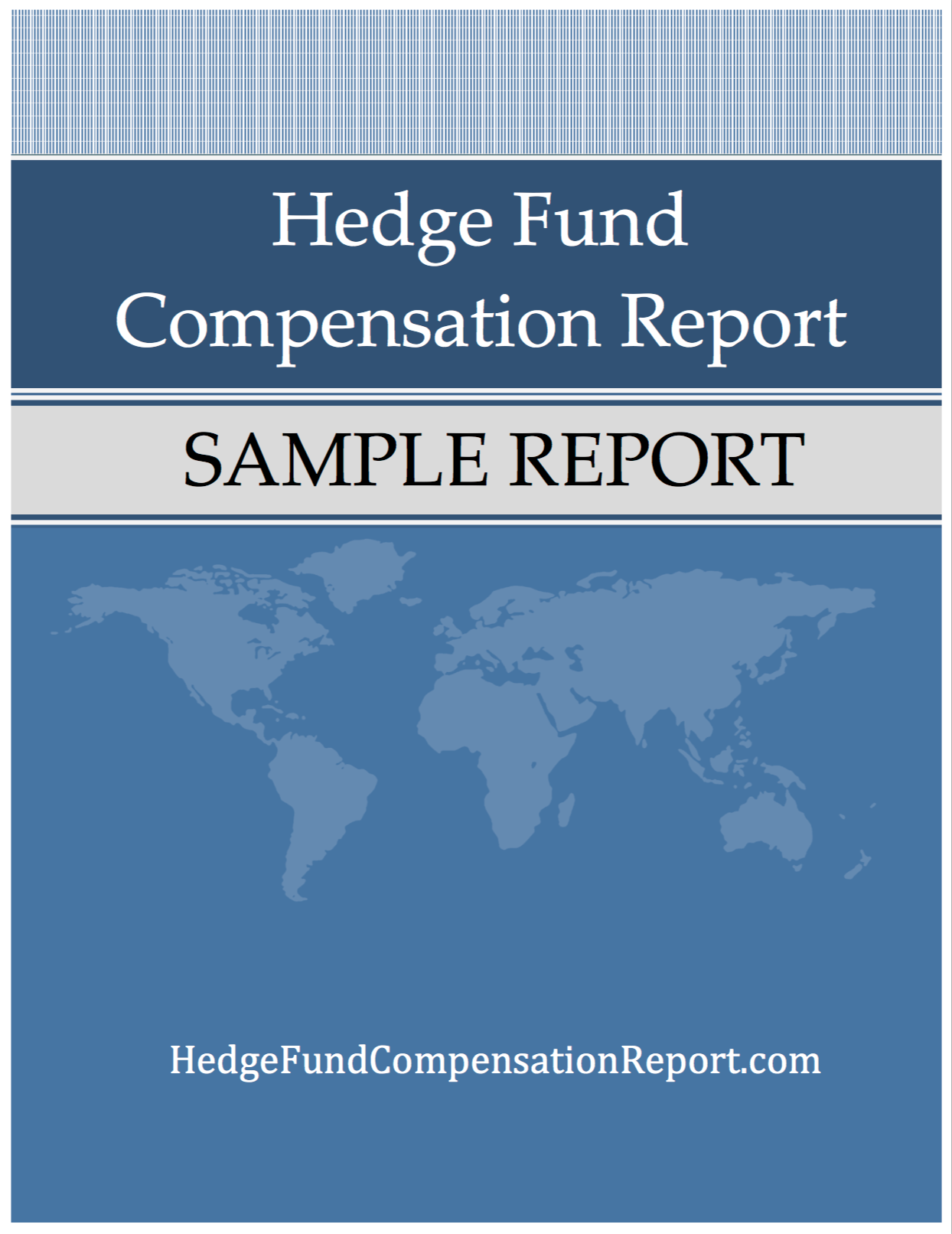It will be of no surprise to most readers that those working in the hedge fund industry enjoy some of the highest compensation out of any financial professionals. In fact, our 2015 Hedge Fund Compensation Report found that three quarters of hedge fund professionals earn between $100,000 and $500,000 per year. And this amount is growing rapidly, with an average increase of 12 percent from the prior year.
In terms of the distribution of gains, those higher than average, but not quite at the top of the scale, seem to be experiencing the most growth. Those earning over $500,000 in 2014 actually declined 1 percentage point year over year, but those in the $250,000 to $500,000 range increased by a healthy 4 percentage points. On the other hand, those in the bottom of the range, below $100,000 per year, declined from 14 percent down to 10 percent of respondents.
Over the years, we’ve seen earnings levels rise and fall with the broader economy, and specifically with the health of the financial industry. While it appears that salaries and bonuses do adjust to broader economic conditions, there is somewhat of a lag before financial professionals feel the pain. We observed a marked correction downward in salaries following the financial crisis, but salaries actually topped out a year after Lehman Brothers. Since the bottom, we’ve seen a steady climb upward in most salary ranges, other than those at the bottom of the scale, indicating health growth in compensation for the industry.
The numbers don’t always tell the full story though, especially in regards to those at the bottom of the pay scale in the hedge fund industry. Many of the highest earning hedge fund professionals were once among the bottom earners, especially if they are founders of their own funds. In the early days of a hedge fund’s operation, much of the leadership operations on several reduced or even non-existent salaries before the firm begins to generate sufficient fee revenue. The payoff is in the longer term of course, where these same professionals can enjoy the large compensation advantages of being in senior positions of an established fund.
As momentum continues to remain strong for the industry and for compensation, we expect this trend to continue through into 2015. However, these new highs for many professionals may signal that times are getting quite rich yet again, and individuals may want to prepare for less generous increases in the future following several years of strong growth.


